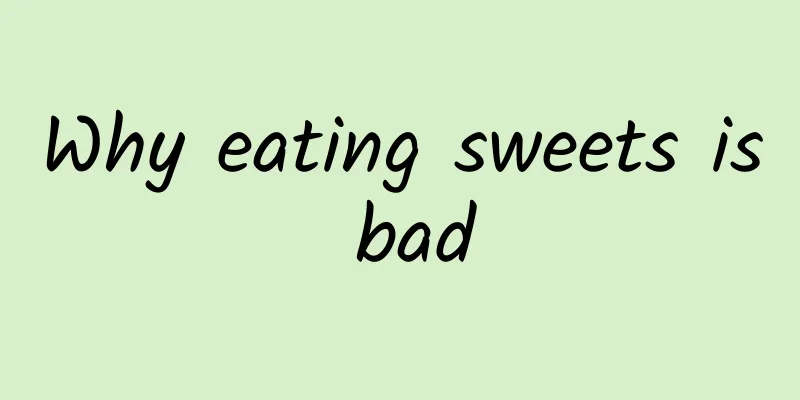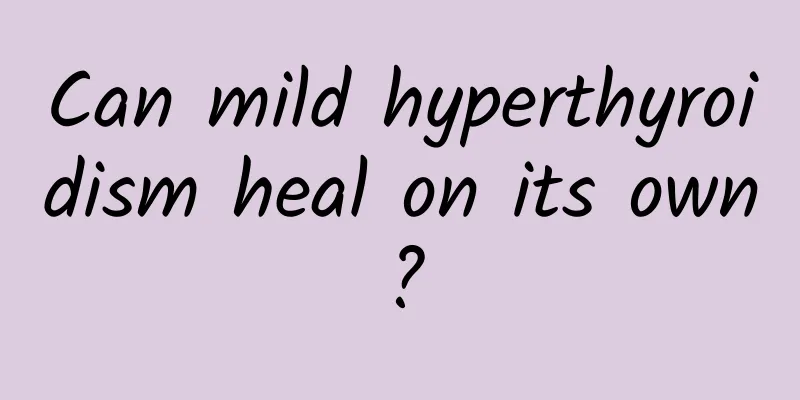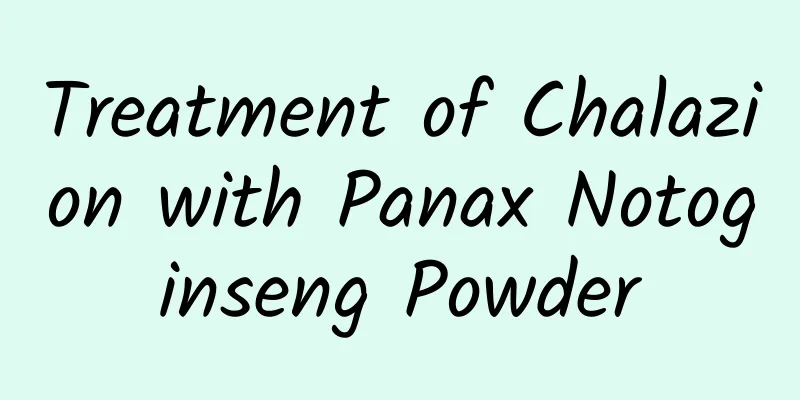Will I really go into shock if my blood pressure drops to 50?

|
Patients with low blood pressure should pay more attention to their blood pressure. In fact, low blood pressure can cause patients to experience symptoms such as dizziness, fatigue, and vertigo. Many people want to know, when blood pressure is below 50, will it really cause shock? Chronic hypotension can generally be divided into three categories: ① Constitutional hypotension is generally believed to be related to heredity and weak constitution. It is more common in women and the elderly aged 20-50. Mild cases may have no symptoms, while severe cases may experience mental fatigue, dizziness, headache, and even fainting. It is more obvious in summer when the temperature is higher. ② Postural hypotension: Postural hypotension is a sudden drop in blood pressure of more than 20 mmHg when the patient changes from a lying position to a sitting or upright position, or stands for a long time, accompanied by obvious symptoms, including: dizziness, blurred vision, fatigue, nausea, cognitive dysfunction, palpitations, and neck and back pain. Postural hypotension is related to many diseases, such as multiple system atrophy, diabetes, Parkinson's disease, multiple sclerosis, menopausal disorders, hemodialysis, surgical sequelae, anesthesia, antihypertensive drugs, diuretics, hypnotics, antipsychotics, etc., or other conditions such as: elderly people who are bedridden for a long time and have weak constitution. ③ Secondary hypotension: hypotension caused by certain diseases or drugs, such as syringomyelia, rheumatic heart disease, antihypertensive drugs, antidepressants and chronic malnutrition, hemodialysis patients. The main clinical manifestations of hypotension patients: mild symptoms may include: dizziness, headache, loss of appetite, fatigue, pale complexion, indigestion, motion sickness, etc.; severe symptoms include: orthostatic vertigo, cold limbs, palpitations, difficulty breathing, ataxia, slurred pronunciation, and even fainting, and the need for long-term bed rest. These symptoms are mainly caused by a drop in blood pressure, which leads to slow blood circulation and ischemia of distal capillaries, thereby affecting the supply of oxygen and nutrients to tissue cells and the excretion of carbon dioxide and metabolic waste. It especially affects the blood supply to the brain and heart. Doing this for a long time will greatly reduce the body's functions. The main hazards include: decreased vision and hearing, inducing or aggravating senile dementia, and greatly increased incidence of dizziness, fainting, falls and fractures. Fatigue, mental exhaustion, depression, and melancholy often occur, affecting the quality of life of patients. According to research by foreign experts, low blood pressure may lead to cerebral infarction and myocardial infarction. When orthostatic hypotension becomes serious, the patient may experience a rapid drop in blood pressure every time he changes position, resulting in fainting and being forced to stay in bed. It may also induce cerebral infarction and myocardial ischemia, causing serious problems for the patient, his family and society. Patients with mild hypotension who do not have any symptoms do not need drug treatment. The main treatment is to actively participate in physical exercise, improve physical fitness, increase nutrition, drink more water, eat more soup, and consume slightly more salt than normal people every day. Severe cases are accompanied by obvious symptoms and must be given active treatment to improve symptoms, enhance quality of life and prevent serious harm. In recent years, the alpha receptor agonist Guantong (the main ingredient is midodrine hydrochloride) has been launched. It has the function of regulating vascular tension, which can increase peripheral arterial and venous resistance, prevent large amounts of blood stasis in the lower limbs, and constrict arterial blood vessels, thereby raising blood pressure and increasing blood supply to important organs such as the brain and heart, and improving symptoms of hypotension such as dizziness, fatigue, and easy fatigue. Other drugs include: midodrine, Ritalin, ephedrine, dihydroergotamine, fludrocortisone, etc. The effects and negative effects of traditional Chinese medicine treatment (Shengmai Yin) need to be further investigated. Definition, classification and symptoms of hypotension In the outpatient clinic, we sometimes encounter patients like this: young, female, thin, often feel mental fatigue, weakness in the limbs when getting up in the morning, dizziness when sitting up, black spots in front of the eyes, and palpitations. The symptoms will be slightly relieved after lying in bed for half an hour. They usually feel dizzy and weak, especially sleepy after lunch, and cannot concentrate. The hospital examination did not find any disease and the blood pressure was measured at 75/40 mmHg. In fact, this is a typical hypotensive patient with obvious hypotension symptoms. In serious cases, it will affect life and work. The following is the classification and treatment: (I) Qi Deficiency and Yang Deficiency Qi deficiency may cause pale complexion, dizziness, shortness of breath, laziness to speak, fatigue, and even fainting. In addition to the symptoms of qi deficiency, yang deficiency also includes fear of cold, cold limbs, spontaneous sweating, a slow or late and weak pulse, and a fat and pale tongue with a white tongue coating. a. Heart Qi deficiency, in addition to the above symptoms of Qi deficiency, there are also palpitations, shortness of breath, chest tightness, etc. Only then can you choose Du Shen Tang with modifications. Experienced recipe: 3 grams of ginseng and lotus seeds, 1 liang of rock sugar, stewed in water, eat the lotus meat and drink the soup. b. Spleen deficiency or sinking of qi in the middle part, accompanied by poor appetite, abdominal distension, loose stools, shortness of breath, fatigue, etc. Only then can you choose Buzhong Yiqi Decoction. c. Kidney Yang deficiency is characterized by cold body and limbs, shortness of breath when moving, or diarrhea at dawn, etc. You can choose Baoyuan Decoction, Zhenwu Decoction, Sini Decoction, Jinkui Shenqi Pills, and Yougui Pills with modifications. Empirical recipe: 2 qian of ginseng (chewed), 1 liang of polygonatum, 3 qian of wolfberry, 1 qian of cinnamon, 1 qian of licorice, decocted in water and taken, 1 dose per day. (ii) Deficiency of both Qi and Yin In addition to the above-mentioned symptoms of qi deficiency, there are also manifestations of yin deficiency. Such as dry mouth, fever in the five parts of the body, constipation, oliguria, fatigue, red tongue with little coating and thin and stringy pulse. a. Deficiency of both heart qi and yin may cause palpitations, shortness of breath, chest tightness, etc. Shengmai Yin and Zhigancao Decoction are commonly used. Empirical prescription: 5 qian of Astragalus, 4 qian of Codonopsis, 3 qian of Ophiopogon, 2 qian of Schisandra, and 1 qian of Bupleurum. Boil them in water and take three times a day. (People with inflammatory diseases, irritability, bitter taste in the mouth, irritability, and insomnia are considered to have real symptoms. People who are not suffering from Qi and Yin deficiency should not take this prescription.) b. Deficiency of both kidney yin and yang, often with symptoms such as dizziness, blurred vision, tinnitus, deafness, back pain, weak legs, fatigue, and forgetfulness. The prescription can be modified by using Wu Zi Yan Zong Wan, Jin Kui Shen Qi Wan, etc. (III) Diagnosis and treatment reference Some reports state that when making a diagnosis, the patient suffers from deficiency of both Qi and blood, and uses Bazhen Decoction, Shiquan Dabu Decoction, and Renshen Yangrong Decoction. For headache caused by Qi deficiency and phlegm, use Banxia Tuma Baizhu Decoction. Dizziness caused by spleen yang deficiency and phlegm and fluid: use Ling Gui Zhu Gan Decoction. prevention: Develop a habit of exercising, eating a balanced diet, cultivating a cheerful personality, and getting enough sleep. Therefore, patients with low blood pressure should lead a regular life. When bathing, patients with low blood pressure should be careful to prevent fainting by standing up suddenly, and try to shorten the time spent in hot springs. Use with caution with vasodilators, sedatives and antihypertensive drugs. People with orthostatic hypotension: You can wear elastic socks. When getting up to urinate at night or before getting up in the morning, it is advisable to move your limbs or stretch your body. After exercising for a while, get up slowly. Never get up suddenly as soon as you wake up to prevent transient cerebral ischemia. You can also close your eyes, flex your neck to the maximum before standing up, and then slowly stand up, holding for about 10 to 15 seconds before walking, to prevent orthostatic hypotension. Low blood pressure Suitable: a combination of meat and vegetables. Longan, lotus seeds, jujube, mulberry, etc. have the function of strengthening the mind and nourishing the brain, and should be eaten regularly to enhance physical fitness; low blood pressure caused by blood loss and excessive menstruation should pay attention to eating foods that provide hematopoietic raw materials, such as foods rich in protein, copper, and iron - liver, fish, milk, eggs, beans, and iron-rich vegetables and fruits, etc., which will help correct anemia. Patients with hypotension should choose a high-sodium (12-15 grams of salt per day) and high-cholesterol diet, such as animal brains, livers, egg yolks, cream, fish roe, etc., to increase blood volume, cardiac output, arterial tension, and blood pressure will rise accordingly. Avoid eating raw, cold, and qi-breaking foods, such as spinach, radish, celery, cold drinks, etc. Don't eat foods that lower blood pressure, such as corn! |
<<: What causes gout? What is the best way to prevent gout?
>>: How to treat rhinitis? 4 reasons you must know!
Recommend
What should I do if I have lumps and pain in my breasts during lactation?
For the sake of their babies, many young mothers ...
What is the cause of the left ovarian cystic echo
During the examination, if the left ovary is foun...
What's wrong with the waist?
Everyone's work content is different. Some pe...
How to promote secondary bone development?
Growing taller is every child's dream. With t...
How to treat lumbar nerve compression?
Lumbar disease is a common disease in clinical pr...
What is the cause of high triglycerides? Be careful, it may be a disease!
High triglycerides are hypertriglyceridemia, and ...
Ten drops of water can cure eczema
Eczema is not a very complicated disease in life,...
How to feel out a breast lump?
Breast lumps are a condition that may occur in wo...
The Essence and Treatment of Neurosis
Many people don’t quite understand the feeling of...
Functional dyspepsia precautions
We also call functional dyspepsia indigestion. Fu...
What is the best medicine for soft glans?
We all know that the male glans is the second sym...
What to do if your baby has a persistent low fever
If the baby at home has a low fever that won'...
Women’s health: What are the foods that nourish yin and replenish blood?
In fact, for women, external care is not as good ...
Polyp on waist
Polyps are a very special disease that can occur ...
Treatments for dysmenorrhea
Women's bodies are relatively fragile, especi...









